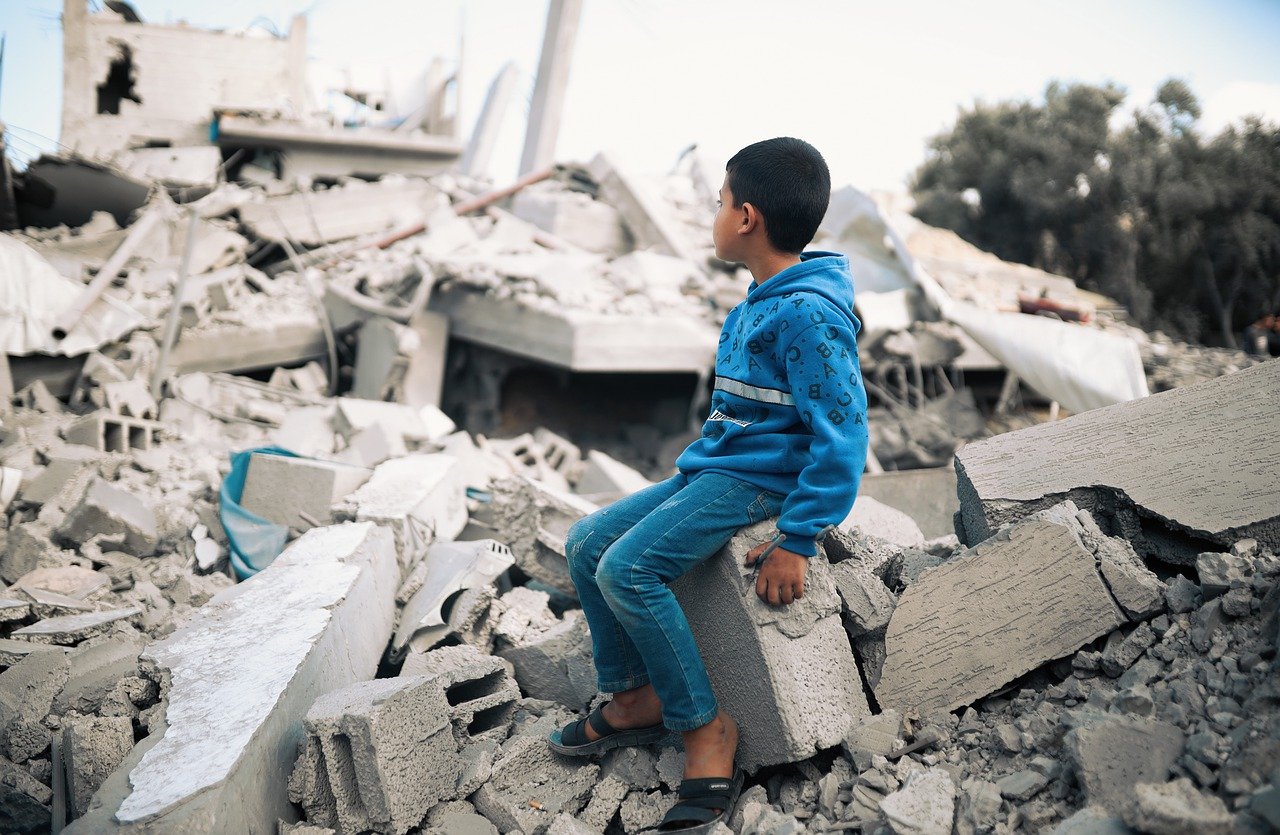Crisis offer: First Aid for Psychological Problems

People who fled their countries are often cut off from their families and communities. When their loved ones are in danger, the sense of missing them intensifies even more. They are anxious and feel powerless, especially when they can no longer reach them and remain in the dark about their fate.
This despondency can fuel a sense of despair. They often also feel guilty for having left their families behind, a kind of ‘survivor’s guilt’.
How do refugees react to crisis situations in their countries of origin?
They face acute stress. What that extra stress does to someone varies from person to person. Recognised refugees have already endured a lot of stress when they fled their country, during the flight and by adapting to new life in Belgium. Not everyone who is still processing this initial stress can cope with the additional stress.
In refugees with post-traumatic stress disorder, this acute stress can rekindle the trauma, evoking symptoms such as sleep and eating disorders, and physical stress symptoms such as back and abdominal pain, flashbacks, nightmares, suspicion, alienation and isolation.
A particularly vulnerable group are unaccompanied minors, sometimes under 12 years old. They were often instructed to take care of the family left behind by earning a living here or by bringing their relatives over. For them, it is very confusing and frightening to know that their family is in danger.
How can you support them psychologically?
Refugees often show exceptional resilience in difficult circumstances. However, when stress becomes too much or lasts too long, people go into survival mode. Then they exhibit ‘fight, flight and freeze’ reactions. Their problem-solving ability is impaired and they lose their perspectives, sense of purpose and respect for themselves and others.
Through the relationship of trust you built with your clients, you can tap into their resilience. You can help them reconnect with their immediate environment and gain a sense of control over it.
Some things that can help are:
- listening and acknowledging their difficult situation. This is not always easy, especially for professionals who mainly want to offer solutions.
- psycho-education about what stress does to the mind and body. It helps people normalise and better manage the strange physical reactions they experience.
- apply stress reduction techniques together (e.g. breathing in and out calmly)
- address their resilience.
How can Solentra help you?
If you notice extreme stress in a client and have questions about how best to deal with it, you can contact our helpdesk for professionals. We will work with you to find the right approach and can elaborate on the tips above.
Our offer for refugees
If you notice that someone needs more psychological support, we will work with you to determine the needs and options. Our offer includes stress reduction therapy and group sessions.
Stress reduction therapy
- a low-threshold programme that offers fast and tailored care in moments of crisis
- individual
- by phone / online
- 3 sessions of 1 hour
- in the client’s language
Group sessions
- a low-threshold offer for specific target groups in need of stress reduction
- in group
- face-to-face
- 3 sessions of 1.5 hours
- in the client’s language (with interpreter if necessary)
What does it cost?
Solentra’s offer is always free for the client. To cover the cost of counselling, we seek funding through project grants, cooperation agreements with institutions counselling people with refugee backgrounds or other third-party payers.
How to apply?
This offer is only available after registration by a referrer through the online registration form. For group sessions, make sure to register each client individually (stating ‘group sessions’ in the request for help).
Registration is possible regardless of the scheduled dates already shown in our calendar. We always contact you to schedule a session.
Questions?
- For substantive questions, please visit our helpdesk.
- You can ask practical questions via our contact form or by phone (from 9 a.m. to 1 p.m.) on 02 477 57 15.